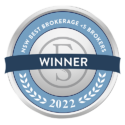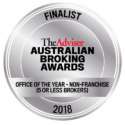Why get a small business loan?
There are many reasons a small business owner might want extra finances to support their business.
These reasons may include:
- Assisting with cashflow.
This could be due to mismatched credit terms between customers and suppliers, or seasonal/sporadic revenue and expenses. - Cost savings through economies of scale.
This could include larger discounts and reduced costs of sales when making larger orders with suppliers. - Growth and expansion.
You may need to hire additional staff, open more locations, fund marketing campaigns, and acquire other businesses. - Purchasing stock and equipment.
Your business needs to replace old or outdated equipment, and new stock to meet customer demand. - Fitouts, renovations, and refits.
This could include giving a tired business premises a facelift. - Unexpected expenses.
This covers repairs and maintenance, additional labour costs, insurance premium increases, material price rises, and energy cost increases.
Factors to consider when taking out a small business loan
The most important factors to consider when taking out a small business loan:
What is the problem you are trying to fix or an opportunity you are looking to take advantage of?
Do you have suppliers who require payment on 14-day terms and your customers are on 30-day terms? Are you wanting to take advantage of supplier discounts offered on large purchase volumes? Are you looking to purchase a competitor’s business? Knowing this will help guide you to the most suitable loan product to match your needs.
How much do you need?
Borrow too little and you may find yourself short, borrow too much and you may be paying more for finance you don’t need.
What type of product best matches your requirements?
Finding the most suitable loan facility is important as the incorrect loan may not be fit for purpose and may cost your business more.
Which lender or lenders are suitable based on your current circumstances?
If you are a newer business with limited historical financial information, you may be better suited to a lender who has lower documentation requirements, as you may be unable to meet the document requirements of some lenders. Alternatively, if you have all the required documents to qualify for a full doc loan you will pay lower interest and fees versus a low-doc lender.
And finally:
You should consider how experienced and confident you are in managing the process on your own or if you should engage the help of a finance broker who is experienced in small business lending. An experienced finance broker will be able to help you navigate all the important factors when looking at taking out a small business loan.
Types of Small Business Loans
Small business loans can range in size from $5,000 up to $2 million.
Types of Small Business Loan Products
There are several small business loan products which are available and it’s important to select the right product for your business.
Term loans: This type of loan involves a principal sum borrowed and advanced to the customer, which is then repaid in instalments over a period. Term loans can be over periods as short at 3 months and up to 10-year terms. Repayments can be monthly, weekly, and even daily. Interest rates can be fixed or variable, and initial interest only repayment terms may be offered. Term loans with longer repayment periods are best suited to business expenses such as fitouts and renovations, business acquisitions, and the purchase of equipment and other business assets. Shorter term loans may be suitable for stock purchases and unexpected business expenses.
Overdraft: An overdraft is where the bank authorises a business bank account to go temporarily into a negative balance. There is usually a fee involved for every time the account goes below a zero balance, as well as an interest rate applied to the overdrawn funds. This facility is best suited to a business which may require sporadic occasional access to additional funds and where the overdrawn amount will be repaid within a short period.
Line of Credit: A line of credit is a separate account which can be drawn upon by the business up to the approved limit. Each month the business is required to repay the interest on the drawn funds, however repayment of the principal is optional provided the interest repayment is being met. These facilities are better suited to businesses with a frequent and ongoing need to access funds on a short-term basis to minimise the impact to the business from the timing of cash inflows and outflows.
How do I choose the right type of small business loan for my business?
These are the steps to choosing the right type of small business loan for your business.
- Have a clear understanding of why you need the funds
- Know how much you need to borrow
- Decide what type of loan product best suits your requirements
- Be aware of what information and documentation you have ready and available
- Determine which lenders offer the loan product you need and whose document requirements you meet
- Evaluate and compare the terms, fees, charges, and interest rates of the available lenders and choose the lender which best meets your needs at the lowest overall cost.
A finance broker with experience in small business lending will be able to assist and guide you through the process of choosing the right type of small business loan.
How do I know if I’m eligible for a small business loan?
Eligibility requirements for small business loans vary greatly from lender to lender.
The minimum eligibility requirements for an unsecured short term (3-6 months) small business loan up to $150,000 are:
- Minimum turnover of $60,000 per annum
- Minimum six months of business trading history
- Three months of business bank trading account transaction data
The rule of thumb for the maximum approval amount for short term business loans is from 10-15% of the business’s annual turnover. For example, the maximum loan size for a small a business with annual turnover of $200,000 would be around $20,000 – $30,000.
The most efficient and accurate way to determine if you are eligible for a small business loan is to speak with a finance broker who has experience in small business lending.
Secured vs Unsecured Small Business Loans
Unsecured small business loans range in size from $5,000 up to $500,000. While these loans do not require property (residential or commercial) to be held as security by the lender, they do usually require a General Security Agreement (GSA) over the company as well as a director’s guarantee. Unsecured small business loans attract higher fees and interest rates when compared to secured small business loans.
Secured small business loans can involve loans of up to $2m. These loans require property to be held by the lender as security over the loan, which is then released once the loan has been repaid. Secured small business loans have lower fees and interest rates when compared to unsecured small business loans.
What documents do I need to apply for a small business loan?
Document requirements for small business loans can range from low doc to full doc, depending on the product and size of the loan.
Low-doc requirements can start from as little as three months of business bank trading account transaction history data.
In addition, the following documents may also be required:
- Business Activity Statements (BAS) up to 12 months
- Financials (Balance sheet & profit and loss) up to 3 years
- Tax returns up to 3 years
- Current ATO Portal statements
- Statements for current liabilities
- Cash flow forecasts up to 36 months
- Business plan
- Evidence of asset ownership (such as registration paperwork and council rates notices)
- Statement of assets and liabilities
- Any other documents the lender deems as required to complete their credit assessment
It is common with small business loans that there will be questions from the lender once your application has been submitted to assist them in making their approval decision.
Our experience is that when supplying documents and answering questions, it is best to be direct and specific, only providing exactly what has been requested. Supplying information and documentation beyond what has been asked for can lead to negative loan approval outcomes.





